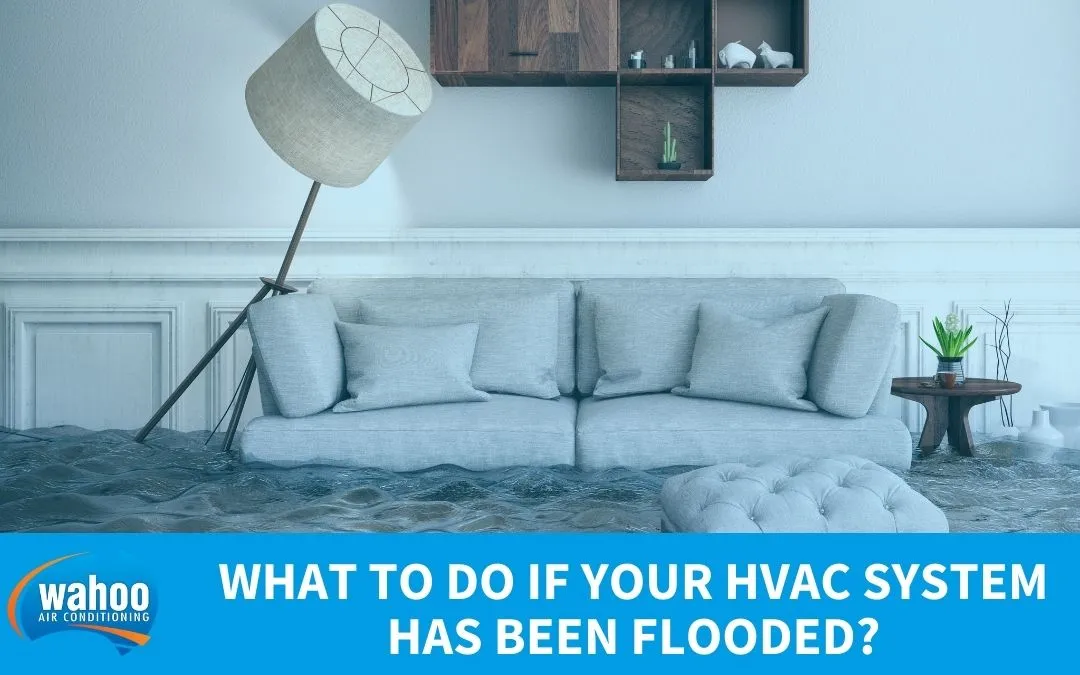We’ve all seen the devastation that Tropical Cyclone Alfred has brought to Brisbane. Homes and businesses have been hit hard, and unfortunately, HVAC systems are often caught in the crossfire of floodwaters. If your air conditioning unit has been submerged, your first priority is the safety of yourself and your loved ones. Once everyone is safe, it’s time to assess the damage, and that includes your HVAC system.
There’s never a good time for your air con to break down, but it’s particularly stressful after a flood. You might be left sweltering in the aftermath, and it’s natural to want to get your system up and running ASAP. However, it’s crucial to take the right steps to avoid further damage and potential hazards.

5 Things To Do If Your HVAC Systems has been flooded
Here’s a breakdown of what to do if your HVAC system has been flooded:
1. Safety First: Switch Off the Power
If your home has been flooded, the most important thing is safety. If it’s safe to do so, turn off the power to your HVAC system at the main switchboard. This will protect the unit and prevent electrical hazards. Water and electricity are a dangerous combination, so don’t take any risks.
2. Disconnect the System
Once the power is off, disconnect the HVAC system from its electrical supply. This provides an extra layer of protection against potential electrical damage from lingering water.
3. Let It Dry Out
If your home or office has been flooded, it’s important to allow your HVAC unit to dry up completely. If the HVAC is still wet, it can cause problems like rust and mould. In extreme cases, it can even start a fire. So please take the time to let your HVAC unit dry out before using it again.
4. Clean Up the Mess
Floodwaters often bring in mud, silt, and other debris. Carefully clean up any visible water or mud around and on your HVAC unit. This will help prevent further damage and ensure your system can operate efficiently once it’s safe to turn it back on.
5. Call in the Professionals
This is where it gets crucial. Even if your system looks okay, there could be hidden damage. It’s essential to have a licensed HVAC technician inspect your system before you attempt to turn it on.
Why a Professional HVAC Inspection Is Vital
Floodwater can cause a range of problems with your HVAC system, and these issues aren’t always visible to the untrained eye. Here are some of the potential problems:
Ductwork
Flooded ductwork and insulation can become contaminated and a breeding ground for harmful microorganisms like mould and bacteria. This can lead to serious health problems.
Gas Furnaces
Floodwater can cause corrosion in the components of a gas furnace, reducing its efficiency and creating safety hazards.
Air Conditioning and Heat Pump Systems
Submerged electrical components in air conditioning and heat pump systems can suffer short circuits, making the system unsafe to use. There could also be damage to other vital parts.
A licensed HVAC technician has the expertise and tools to properly assess the damage and determine whether your system can be repaired or needs to be replaced. They can also ensure that your system is safe to operate.
Is Your Flood-Damaged Air Con Covered by Insurance?
This is an important question for many homeowners and businesses affected by Tropical Cyclone Alfred. In many cases, flood damage to your HVAC system may be covered by your insurance policy. However, coverage can vary depending on your specific policy and insurer.
It’s crucial to contact your insurance provider as soon as possible to:
- Confirm whether your policy covers flood damage to your HVAC system.
- Understand the claims process.
- Obtain any necessary documentation or approvals before undertaking repairs or replacements.
Remember to document the damage: Take photos and videos of the damage to your HVAC system and keep records of any communications with your insurance provider. This will help support your insurance claim.
Let Wahoo Air Conditioning Help You Get Back To Comfort
Your safety and the safety of your home are paramount. We strongly recommend leaving your HVAC system turned off until a qualified HVAC technician has conducted a thorough inspection.
At Wahoo Air Conditioning, our team of licensed and experienced technicians is here to help you navigate the aftermath of the floods. We can provide a comprehensive assessment of your HVAC system and offer the best solutions for repair or replacement.
Don’t hesitate to reach out to us by phone or email for a quote or to schedule an inspection. We’re here to help you get your comfort back on track.
